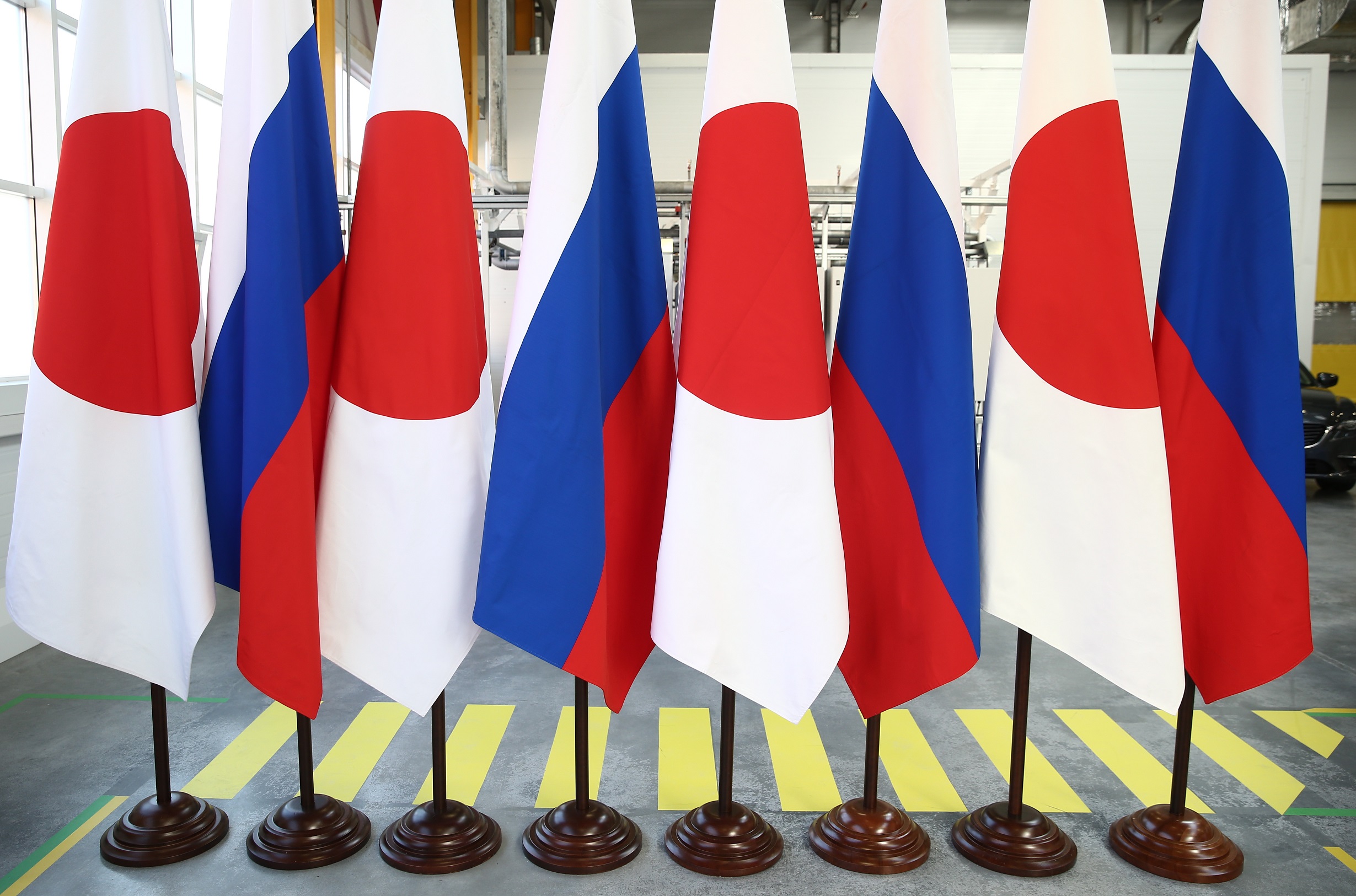ID :
519876
Mon, 01/21/2019 - 10:27
Auther :
Shortlink :
https://oananews.org//node/519876
The shortlink copeid
Japanese PM sets out on visit to Russia to discuss peace treaty with Putin

TOKYO, January 21. /TASS/. Japanese Prime Minister Shinzo Abe is setting out on an official visit to Russia to hold talks with President Vladimir Putin. Their meeting, scheduled to take place on January 22, will be focused on the peace treaty issue.
Japanese Foreign Minister Taro Kono, who will accompany Abe during his visit, said at a press conference on January 18 that he was unwilling to comment on the agenda of bilateral talks in order to refrain from creating obstacles.
Kono held talks with his Russian counterpart Sergey Lavrov in Moscow last week. The Japanese top diplomat said following the meeting that the peace treaty issue was very complicated but the leaders of Japan and Russia were determined to find a final solution.
Conditions for peace treaty
Japan’s Kyodo news agency reported earlier citing government sources that Abe was considering signing a peace treaty with Russia on condition that Moscow provided guarantees that Shikotan Island and a group of uninhibited small islands Japan calls Habomai would be handed over to Tokyo.
According to Kyodo, the plan is to confirm the possibility of the actual handover of Shikotan and the Habomai islands. At the same time, Abe administration officials think that the handover of two other islands - Iturup and Kunashir - looks unrealistic at this point.
Japan believes that if it keeps demanding Russia hand over the Shikotan, Iturup, Kunashir and Habomai islands, it will bring peace treaty talks to a standstill. Nevertheless, it claims that the Soviet-Japanese Joint Declaration of 1956 provides grounds for the handover of two islands. However, the plan may spark criticism in Japan as it implies waiving claims for Iturup and Kunashir, so Abe will keep a close eye on public opinion on the matter.
Kyodo added that the Japanese prime minister was pessimistic about the third option, which suggested that after the handover of Shikotan and the Habomai islands, the parties would continue talks on the two remaining islands.
Top diplomats’ meeting
The two countries’ foreign ministers held talks in Moscow ahead of Abe’s visit. Lavrov said following the meeting that Russia was ready to move towards reaching a mutual understanding with Japan on the issue. At the same time, he stressed that Russia’s sovereignty over the southern Kuril Islands was non-negotiable. He added that major differences still remained between Moscow and Tokyo as far as the peace treaty issue went.
Lavrov also pointed to Washington’s role in Russia-Japan relations, noting that attempts to involve the US in efforts to resolve the peace treaty issue were outrageous.
Peace treaty issue
Since the mid-20th century, Russia and Japan have been holding consultations in order to clinch a peace treaty as a follow-up to World War II. The Kuril Islands issue remains the sticking point since after WWII the islands were handed over to the Soviet Union while Japan laid claims to the four southern islands. In 1956, the two countries signed a joint declaration on ending the state of war and restoring diplomatic and all other relations, however, a peace treaty has still not been reached. Moscow has stated many times that Russia’s sovereignty over the islands cannot be called into question.
On November 14, 2018, Russian President Vladimir Putin and Japanese Prime Minister Shinzo Abe held a meeting on the sidelines of the ASEAN summit in Singapore and agreed that the two countries would speed up peace treaty talks based on the 1956 declaration.
The Joint Declaration said that the Soviet government was ready to hand Shikotan Island and a group of small islands over to Japan, adding that Tokyo would get actual control of the islands after a peace treaty was signed. However, after Japan and the United States had signed the Treaty of Mutual Cooperation and Security in 1960, the Soviet Union withdrew its obligation to hand over the islands. A Soviet government’s memorandum dated January 27, 1960, said that those islands would only be handed over to Japan if all foreign troops were pulled out of the country.
Read more





